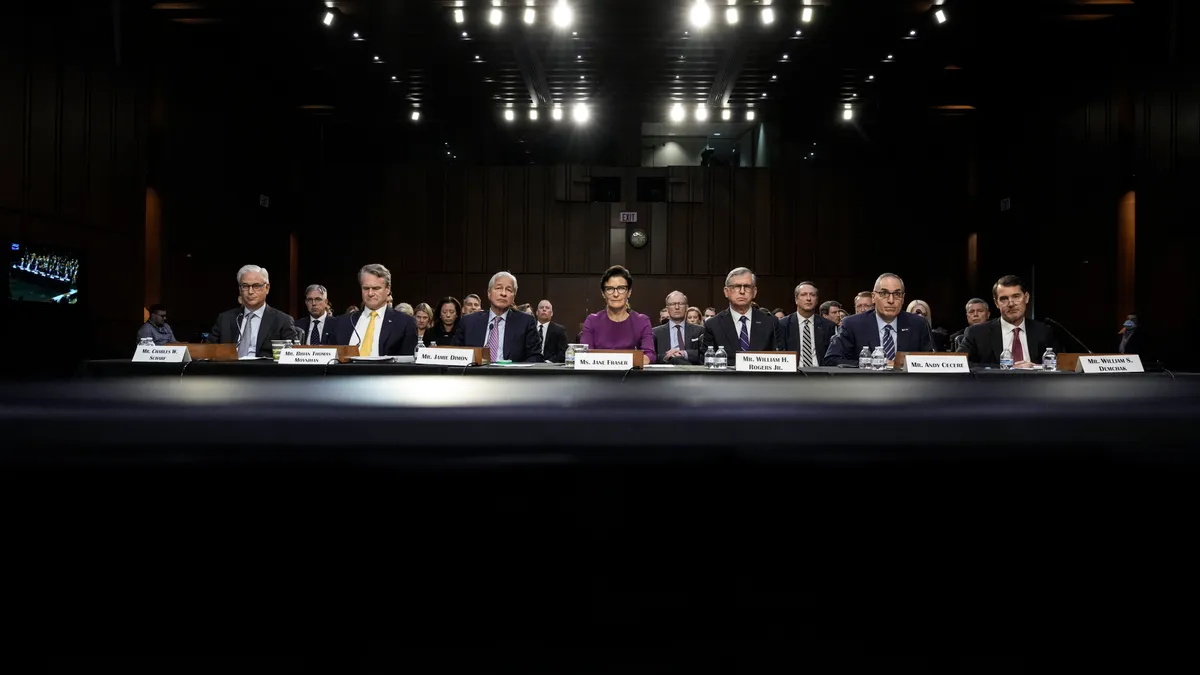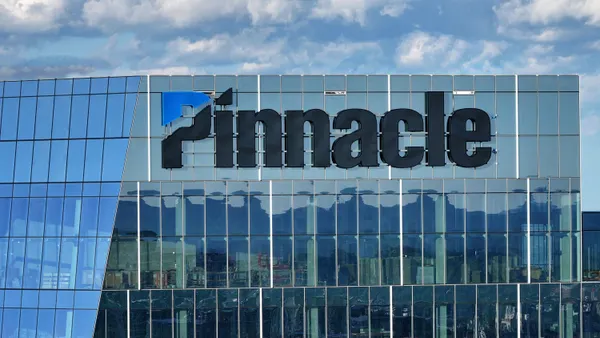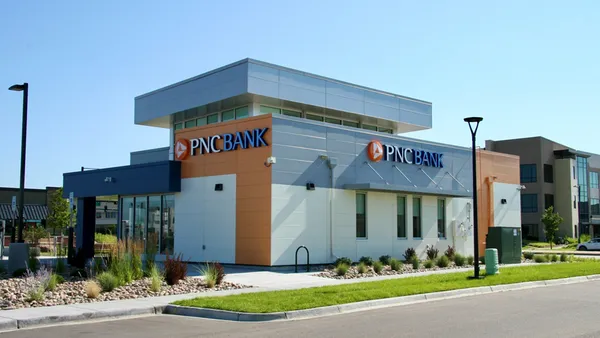The Senate Banking Committee will hold a Dec. 6 hearing featuring the CEOs of eight of the largest U.S. banks, the panel’s chair, Sen. Sherrod Brown, D-OH, announced Friday.
Chief executives from JPMorgan Chase, Bank of America, Citi, Wells Fargo, Goldman Sachs, Morgan Stanley, BNY Mellon and State Street are scheduled to appear in front of the committee.
“My commitment as chair of this committee is to always put the Main Street economy — and the workers who power it — at the center of everything we do,” Brown said in a statement. “Part of that commitment is to hear directly from the biggest banks that hold too much power in the economy. It’s our job to hold them accountable to their workers, to their customers, and to the American people.”
The hearing will mark the third year in a row that Brown has called for the leaders of the nation’s top banks to testify in front of lawmakers in Washington.
“Wall Street megabanks continue to make record profits and to reward corporations that raise prices on Americans,” Brown said.
Previous hearings in front of the Senate panel have featured lawmakers grilling bank leaders on diversity, payments fraud, overdraft policies and environmental, social and governance efforts.
Executive compensation may also take center stage during the December panel. The committee in June advanced to the full Senate a bill that would give federal regulators power to claw back compensation for executives of failed banks.
The panel passed the bill, known as the RECOUP Act, with a 21-2 vote.
But bank CEOs will also likely use the hearing to air their own grievances. The announced hearing comes as top bank leaders have been quick to criticize new capital proposals — rules that would apply to firms with $100 billion or more in assets.
The rules aim to align U.S. banks more closely with international standards, and are, in part, a response to this year’s banking crisis that saw the collapse of three regional lenders.
Some top bank CEOs, including JPMorgan Chase’s Jamie Dimon and Bank of America’s Brian Moynihan, say the stringent changes would have a negative impact on the economy.
While speaking at an industry conference last month, Dimon bemoaned what he saw as a lack of transparency in the proposals.
“Do [regulators] want banks ever to be investable again?” Dimon said. “They’re going to do what they want anyway. That’s all that’s going to happen.”
Moynihan said the proposal would hamper Bank of America’s lending activity, telling attendees at the Bloomberg Invest conference in New York in June that there is a “countervailing effect” on lending every time bank capital buffers are increased.
“It’s fairly straightforward. If our capital ratios go up by 100 basis points, simply put, we can’t make about $150 billion of loans,” he said.















